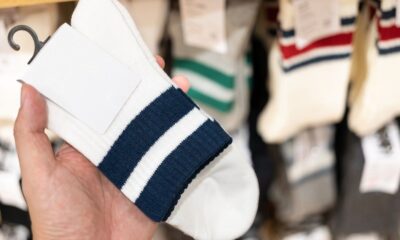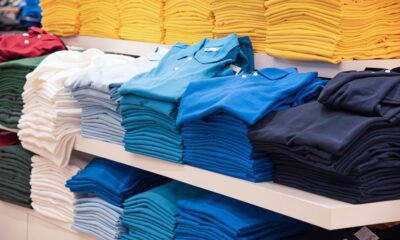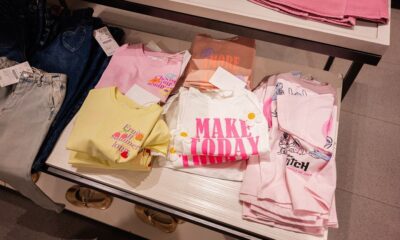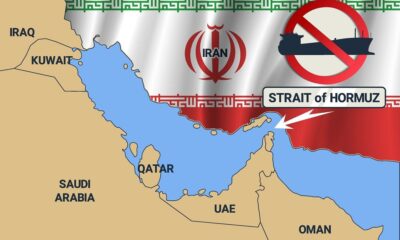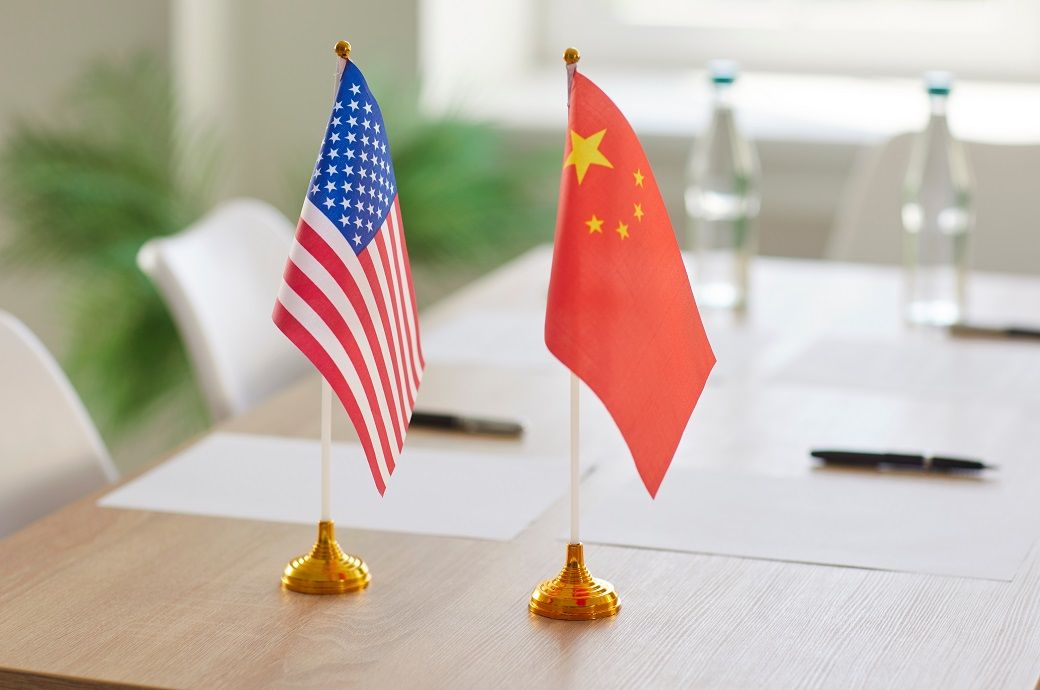Fashion
‘Curly is beautiful’: Tunisian women embrace natural hair
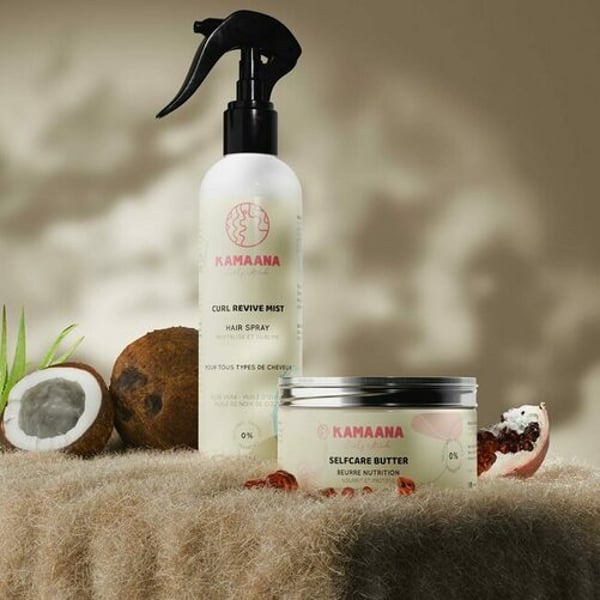
By
AFP
Published
August 21, 2025
In countries around the world, beauty standards have shifted radically in recent years, with a growing number of beauty salons and cosmetic brands in Tunisia promoting natural styles.
Still, the battle is far from won, and many women in Tunisia still rush to get their hair straightened ahead of a wedding or a meeting, and some fear that if they do not wear their hair straight for a job interview, they might not get hired.
Advocates for wearing one’s natural hair believe that at the root of the stigma around curls lies a form of discrimination that they call “texturism”.
“The further you move away from what is considered Afro, kinky or curly, the more socially accepted you are,” said Nawal Benali, a journalist and host of a podcast on racism in North Africa. “Because that’s a marker of proper appearance and presentability.”
Benali said the standards had first been set in “the white, Western world”, calling the obsession around straight hair an attempt to “erase our Indigenous and African features”.
Dhouha Mechergui, who co-founded Pineapple Studio, recalled having her hair straightened by her mother ahead of every religious holiday growing up. She said it took courage to make her own switch to natural, and that she had to work hard to convince women to embrace their curls and come to her salon. “Sometimes I play the role of psychiatrist, because I know making that decision is very difficult,” she said.
Aside from the drive for greater authenticity, health concerns have become a part of the debate, with one major study by the US National Institutes of Health linking chemical hair straightening products to a higher risk of uterine cancer.
For generations, people around the world were told to straighten, braid, cut or otherwise conceal their curls, or else get sent home from school or work. A global drive buoyed by the Black Lives Matter movement gave rise to a major pandemic-era trend of beauty videos celebrating natural hair.
The push did not go unnoticed: French lawmakers last year voted to ban discrimination based on hair texture, while several US states have passed similar legislation. Tunisia has no such initiative, so women entrepreneurs are leading the change.
In 2021, Sirine Cherif cofounded Kamaana — or “as I am” — Tunisia’s first homegrown haircare brand dedicated to curly locks. “When we started, we were the only specialised brand on the market,” she said. “A few months later, there was a domino effect: bigger brands launched their own curly-hair lines.”
And today, Tunisian companies such as Zynia and Lilas Cosmetics have joined the growing industry. For Cherif, the boom is both a lucrative business opportunity and a marker of profound social change.
“We are proud to have encouraged people to be themselves, to resist this societal pressure and embrace their natural hair,” she said. Her company has seen 42% annual growth since its founding, she said, adding: “We want to start a curl revolution.”
Copyright © 2025 AFP. All rights reserved. All information displayed in this section (dispatches, photographs, logos) are protected by intellectual property rights owned by Agence France-Presse. As a consequence you may not copy, reproduce, modify, transmit, publish, display or in any way commercially exploit any of the contents of this section without the prior written consent of Agence France-Presses.
Fashion
USITC launches study on ending China PNTR
Fashion
Germany’s Puma’s FY25 sales slide on wholesale reduction
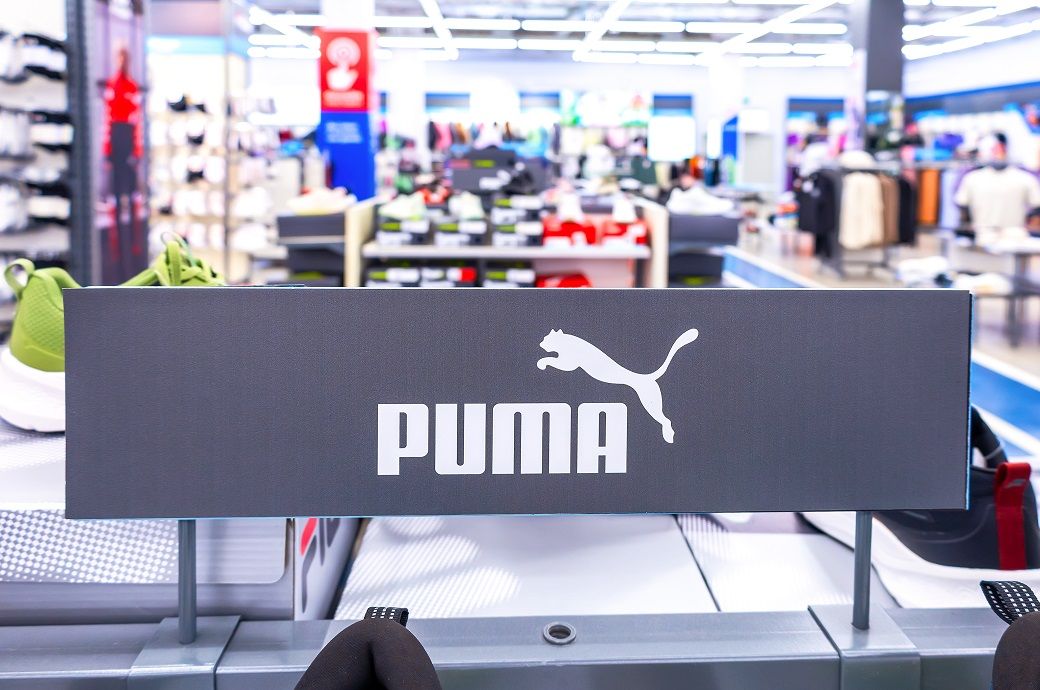
Wholesale revenue dropped 12.8 per cent on a currency-adjusted basis to €4.9 billion, while direct-to-consumer (DTC) sales increased 3.4 per cent, lifting the DTC share to 32.4 per cent from 28.9 per cent.
Regionally, sales fell 6.9 per cent in Europe, Middle East and Africa (EMEA), 7.4 per cent in Asia-Pacific and 10 per cent in the Americas, with North America driving much of the decline.
Puma has reported sales of €7.3 billion (~$8.61 billion) in FY25, with currency-adjusted revenue down 8.1 per cent amid strategic reset actions.
Wholesale declined while DTC share increased.
Margins contracted and EBIT turned negative, leading to a net loss.
Q4 saw sharper declines across regions and categories.
Puma expects further sales softness and negative EBIT in FY26.
By product segment, footwear sales decreased 7.1 per cent, apparel declined 9.7 per cent and accessories fell 8.5 per cent, although selective growth was observed in running, training and premium sport style lines, Puma said in a press release.
Profitability weakened significantly during the year. Gross margin contracted 260 basis points to 45.0 per cent, impacted by promotional activity, inventory reserves, unfavourable mix and currency effects. Adjusted EBIT turned negative at €165.6 million, while reported EBIT declined to -€357.2 million after €191.6 million in one-off costs related mainly to the cost efficiency programme and goodwill impairments.
Loss from continuing operations widened to -€643.6 million, translating to earnings per share of -€4.37 versus €1.88 in the prior year.
From a balance sheet perspective, inventories rose 2.3 per cent to €2.06 billion as inventory takebacks from wholesale partners supported distribution clean-up. Working capital increased 20.2 per cent, while trade receivables and payables declined sharply in line with reduced sales and purchasing activity. Puma ended the year with additional financing capacity, including €1,202.2 million in unutilised credit lines.
Fourth quarter (Q4) performance reflected the peak impact of the strategic reset. Currency-adjusted sales declined 20.7 per cent to €1,564.9 million, with reported revenue down 27.2 per cent due to currency headwinds. The decline was driven by deliberate reductions in wholesale exposure, inventory clearance actions and lower promotional intensity.
Wholesale sales fell 27.7 per cent in Q4, while DTC revenue decreased 8.0 per cent, although DTC share increased to 41.1 per cent from 35.5 per cent. Regionally, sales dropped 12.6 per cent in Asia-Pacific, 22.2 per cent in the Americas and 24.3 per cent in EMEA.
Across product divisions, footwear sales declined 25.4 per cent, apparel fell 13.7 per cent and accessories dropped 18.2 per cent, with selective resilience in training and performance running categories.
Profitability deteriorated sharply. Gross margin declined to 40.2 per cent from 47.7 per cent due to promotions, inventory provisions and currency effects. Adjusted EBIT fell to -€228.8 million, while reported EBIT reached -€307.7 million following one-off costs linked to restructuring and impairment charges. The quarter ended with a loss from continuing operations of -€335 million.
Arthur Hoeld, CEO of Puma, said: “2025 was a reset year for us. We want to establish Puma as a top 3 sports brand globally, return to above-industry growth and generate healthy profits in the medium term. It is crucial to make the Puma brand less commercial and ensure we once again excite our consumers with attractive products, compelling storytelling and distribution in the right channels. I am satisfied with the progress we have made so far. We cleaned up most of our distribution by reducing promotions in our own channels and cutting our exposure to those wholesale channels that damage our brand’s desirability. To better position our product icons and our performance offering and tell more engaging product stories, we created the right structures inside our company. We also addressed operational inefficiencies and further optimised our cost base.”
Looking ahead, Puma expects currency-adjusted sales in fiscal 2026 to decline in the low- to mid-single-digit percentage range, with EBIT projected between -€50 million and -€150 million. Capital expenditure of around €200 million is planned as the company continues investments in brand repositioning and digital capabilities, added the release.
Fibre2Fashion News Desk (SG)
Fashion
India’s real GDP estimated to grow 7.6% in FY26 under new base FY23
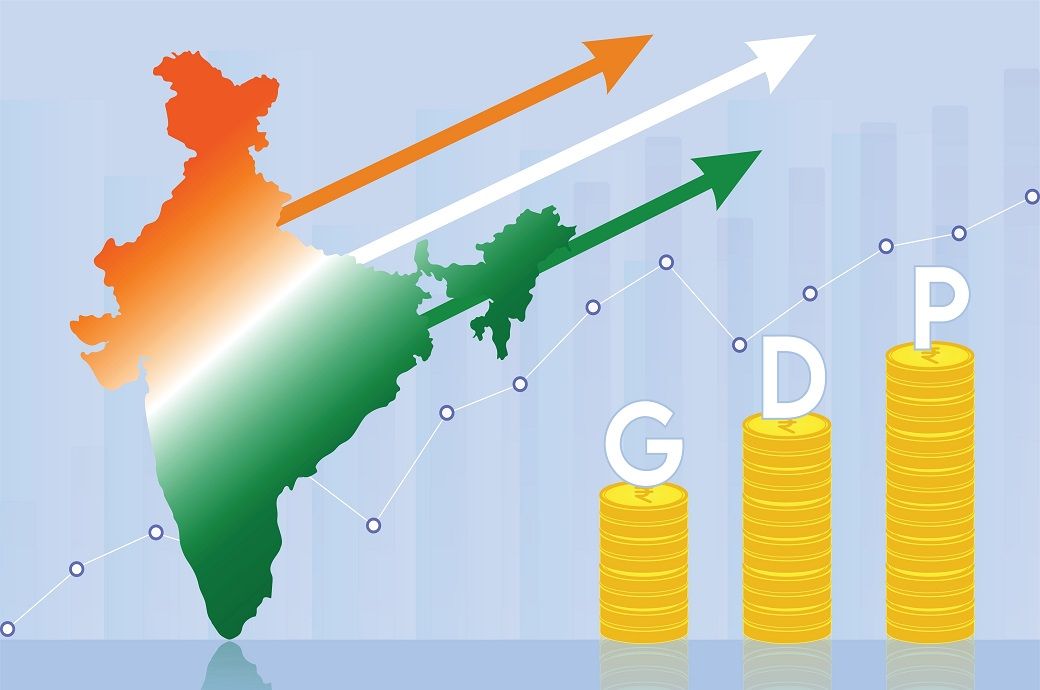
Nominal GDP, or GDP at current prices, is estimated to grow at 8.6 per cent to reach ₹345.47 trillion in FY26 against ₹318.07 trillion in 2024-25.
India’s real GDP is estimated to grow at 7.6 per cent to ₹322.58 trillion (~$3.54 billion) in FY26 compared to the first revised GDP estimate of ₹299.89 trillion for FY25 (7.1 per cent growth).
It released the new series of annual and quarterly national accounts estimates with FY23 base.
Real GVA is projected to grow at 7.7 per cent to reach ₹294.40 trillion in FY26 against ₹273.36 trillion in FY25.
Real gross value added (GVA) is projected to grow at 7.7 per cent to reach ₹294.40 trillion in FY26 against ₹273.36 trillion in FY25 (a 7.3-per cent growth rate).
Nominal GVA is estimated to grow at 8.7 per cent to hit ₹313.61 trillion during FY26, against ₹288.54 lakh crore in 2024-25.
Robust economic performance in FY26 is primarily on account of robust real growth observed in the second quarter (8.4 per cent) and third quarter (7.8 per cent).
The manufacturing sector has been the major driver of resilient performance of the economy the consecutive three fiscals after rebasing, a release from the ministry said.
Both private final consumption expenditure and grossed fixed capital formation exhibited more than 7-per cent growth rate in FY26.
Fibre2Fashion News Desk (DS)
-

 Business1 week ago
Business1 week agoEye-popping rise in one year: Betting on just gold and silver for long-term wealth creation? Think again! – The Times of India
-

 Politics1 week ago
Politics1 week agoPakistan carries out precision strikes on seven militant hideouts in Afghanistan
-

 Sports1 week ago
Sports1 week agoKansas’ Darryn Peterson misses most of 2nd half with cramping
-

 Tech1 week ago
Tech1 week agoThese Cheap Noise-Cancelling Sony Headphones Are Even Cheaper Right Now
-

 Business1 week ago
Business1 week agoEquinox chairman says ‘health is the new luxury’ as wellness spending soars
-

 Sports1 week ago
Sports1 week agoHow James Milner broke Premier League’s appearances record
-

 Tech1 week ago
Tech1 week agoThe Supreme Court’s Tariff Ruling Won’t Bring Car Prices Back to Earth
-

 Entertainment1 week ago
Entertainment1 week agoViral monkey Punch makes IKEA toy global sensation: Here’s what it costs


